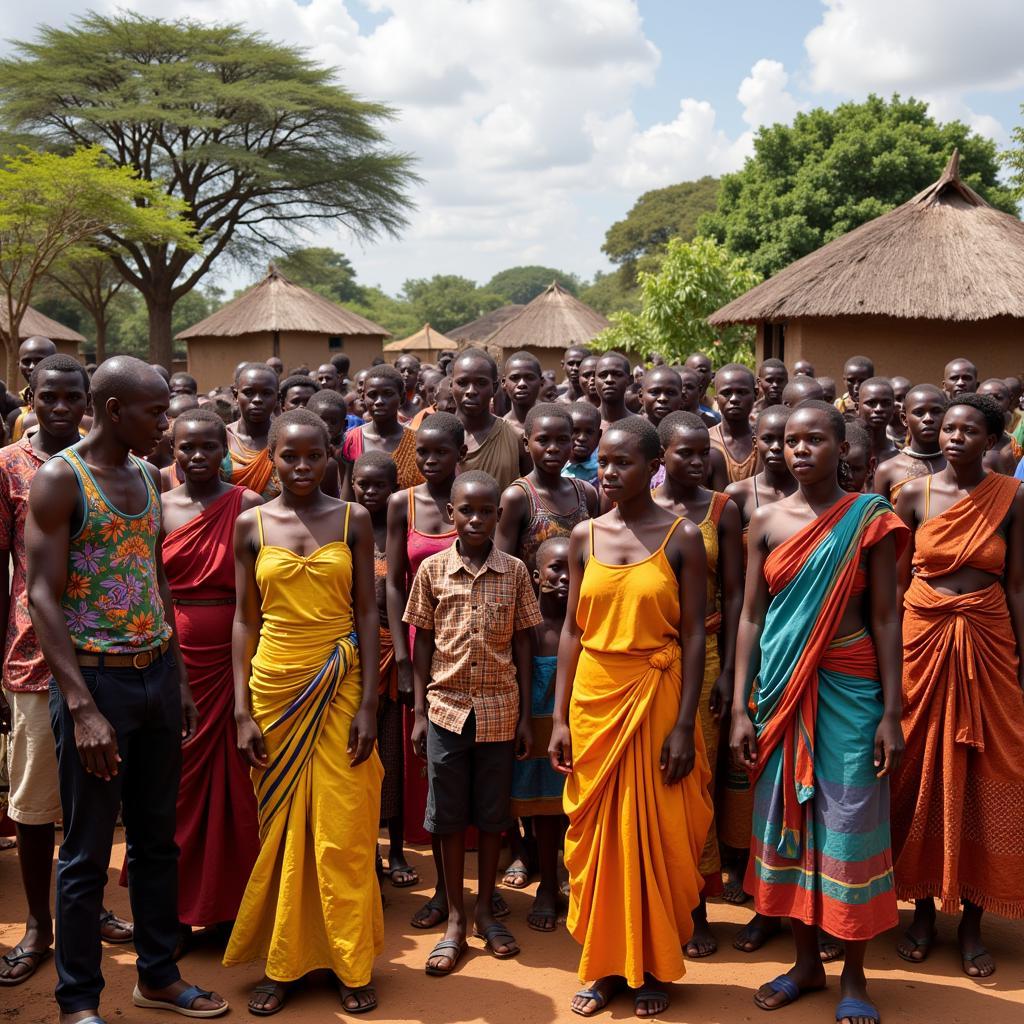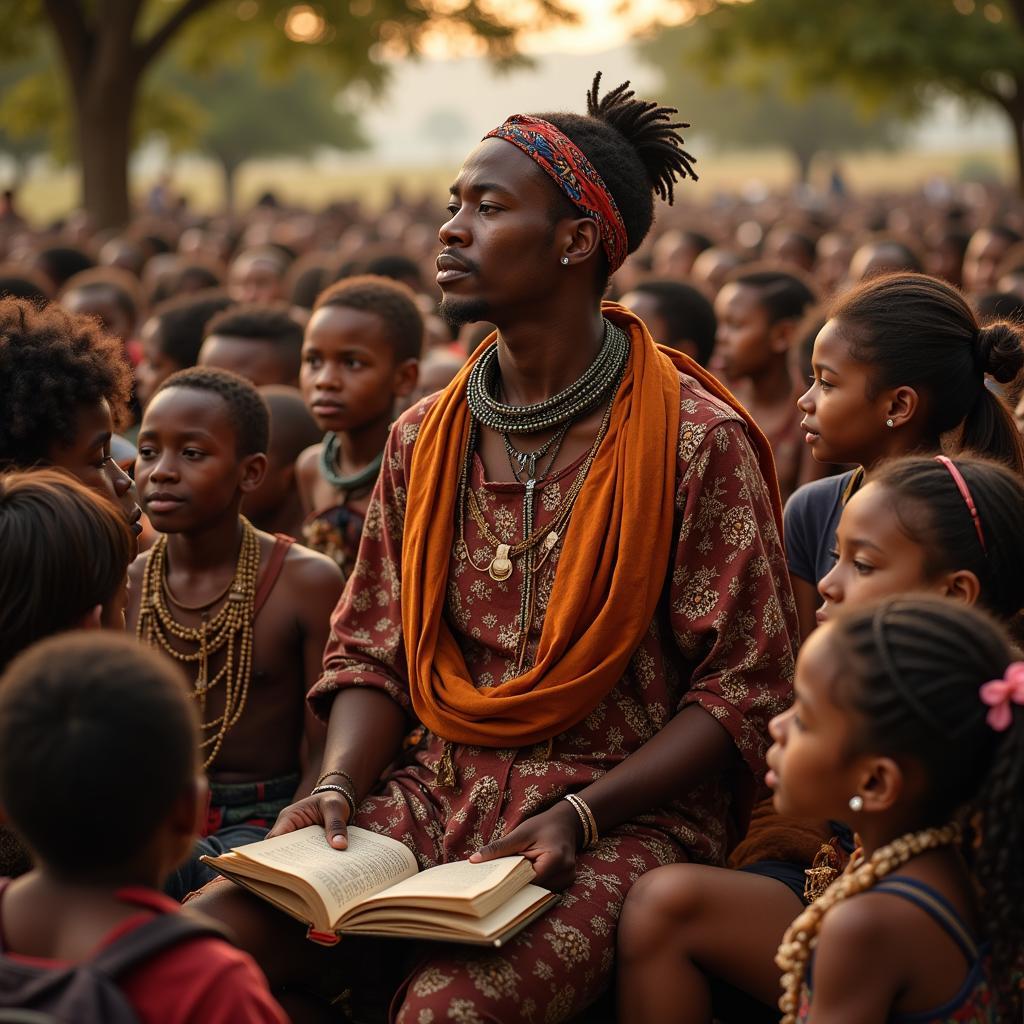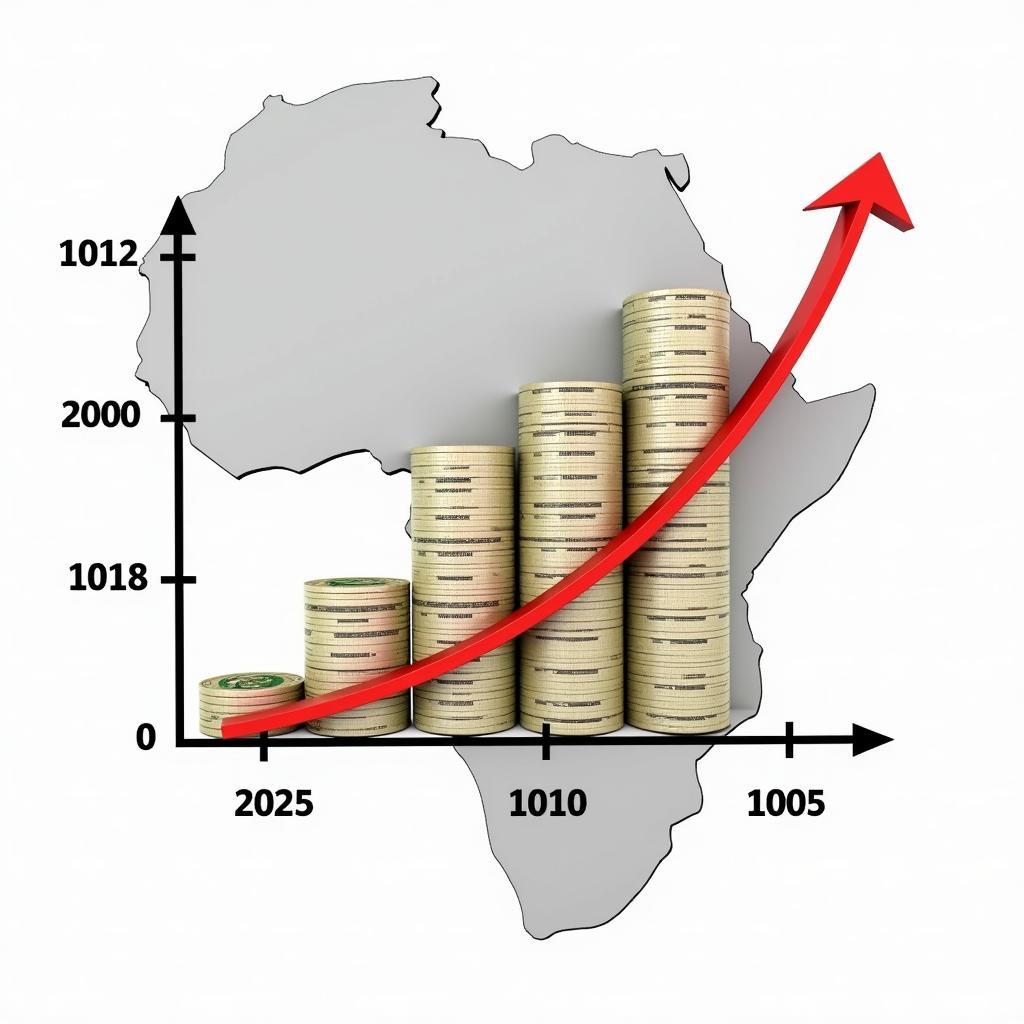Embracing Forgiveness: The African Concept of Encouraging a Person Who Made a Mistake
In many African cultures, the concept of encouraging someone who has made a mistake is deeply rooted in the values of community, compassion, and understanding. It’s not simply about letting go of the error, but actively guiding the individual back towards a path of growth and reconciliation. This approach emphasizes restoring harmony within the community and nurturing the individual’s potential for positive change.
Ubuntu: I Am Because We Are
Central to the African philosophy of forgiveness is the concept of “Ubuntu,” a Nguni Bantu term that roughly translates to “humanity towards others.” Ubuntu emphasizes the interconnectedness of humanity, acknowledging that an individual’s well-being is intrinsically linked to the well-being of the community.
 People gathering in an African village
People gathering in an African village
When someone makes a mistake, it’s seen as a disruption to the collective harmony. However, instead of ostracizing the individual, the focus is on understanding the circumstances that led to the mistake and working together to find a resolution. This approach recognizes that everyone is capable of making errors and that isolation only exacerbates the harm caused.
Restorative Justice: Healing the Wounds
Rather than focusing solely on punishment, many African cultures prioritize restorative justice. This approach seeks to repair the harm caused by the mistake and facilitate reconciliation between the offender and the affected parties.
This often involves open dialogue, where the person who made the mistake takes responsibility for their actions, expresses remorse, and actively participates in finding a way to make amends. The community plays a crucial role in this process, offering support to both the individual who erred and those impacted by the mistake.
Storytelling and Proverbs: Guiding Lights for Reflection
Across Africa, storytelling and proverbs serve as powerful tools for transmitting wisdom, values, and life lessons. These narratives often explore the complexities of human nature, highlighting the importance of forgiveness, empathy, and second chances.
One such proverb, “Every human being is a pot with a crack,” reminds us that everyone has flaws and imperfections. Recognizing this shared vulnerability encourages compassion and understanding when someone makes a mistake.
 An African storyteller captivating his audience
An African storyteller captivating his audience
Encouragement, Not Enabling: A Path to Growth
While forgiveness is paramount, it’s not about condoning wrongdoings. Instead, encouragement is given constructively, emphasizing the importance of learning from the mistake and making better choices in the future. This might involve offering guidance, mentorship, or simply a listening ear.
The aim is to empower the individual to take ownership of their actions, understand the impact of their choices, and strive to become a better version of themselves. This approach recognizes that true growth often stems from setbacks and that mistakes can be valuable learning experiences.
Conclusion: A Tapestry of Forgiveness and Growth
The African concept of encouraging someone who has made a mistake is a testament to the power of community, compassion, and restorative justice. It’s about recognizing our shared humanity, acknowledging that everyone stumbles, and extending a hand to guide each other towards growth and reconciliation. This approach, deeply ingrained in African culture, offers a valuable perspective on navigating the complexities of human error and fostering a more forgiving and understanding world.
FAQs
1. How does the African concept of forgiveness differ from Western perspectives?
African perspectives often emphasize restorative justice and community involvement, while Western approaches might focus more on individual accountability and punishment.
2. What are some examples of traditional African practices that promote forgiveness?
Practices like community mediation, truth and reconciliation commissions, and storytelling traditions all play a role in fostering forgiveness and reconciliation.
3. How can I incorporate the values of Ubuntu into my own life?
Practice empathy, actively listen to others, seek understanding, and extend kindness and compassion, even in the face of mistakes.
4. What are some resources for learning more about African philosophy and values?
Explore books, documentaries, and academic articles on African philosophy, literature, and cultural studies.
Need Support?
For any inquiries or assistance, please contact us:
Phone Number: +255768904061
Email: kaka.mag@gmail.com
Address: Mbarali DC Mawindi, Kangaga, Tanzania.
Our dedicated customer support team is available 24/7 to assist you.

